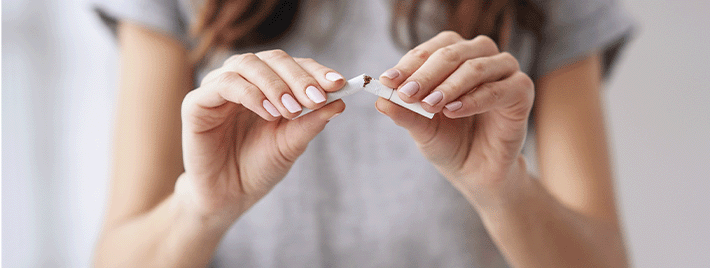Post Date: 1/27/2023

Rhinoplasty operation aims to improve the appearance of the nose and correct functional problems in breathing.
Other common reasons for rhinoplasty include; changing the shape of the nose to improve overall facial symmetry, reshaping the nose to correct a drooping nasal tip, narrowing the nostrils, correcting a deviated septum or other structural problems that cause difficulty breathing, resizing the nose to be proportional to the rest of the face, and correcting birth defects. In general, candidates who want to have rhinoplasty should have completed body development and should not have any medical conditions that may adversely affect healing.
Several specific conditions can make an individual a good candidate for rhinoplasty. These conditions include having completed the development of the nasal anatomy, being dissatisfied with the appearance of the nose and wanting to improve the nose for aesthetic reasons, having a functional problem such as difficulty in the respiratory mechanism caused by the structure of the nose, and having a good psychological and emotional balance.
Nose surgery poses a risk for individuals with a smoking habit. This risk may include problems such as not obtaining the desired results from the operation and the healing process taking longer than normal. A good candidate for the operation should follow the surgeon's instructions before and after rhinoplasty to achieve the desired result from the operation. The individual should rest during the recovery period and avoid activities that may cause excessive fatigue. However, he/she should be willing to quit smoking before and after surgery for some time as advised by the doctor, as it may adversely affect recovery.
It is extremely important not to ignore the negative effect of smoking on nose surgery. Smoking after surgery is one of the most important of these factors. Nicotine in cigarettes, which can prevent the expected results in rhinoplasty, can cause the capillaries to crack, narrow the blood vessels and reduce the blood flow in the operated area. This greatly slows down the healing process and may cause complications such as infection or tissue death.
Smoking causes the tissue inside the nose to become harder and makes it difficult to reshape the nose. For this reason, patients should stop smoking before nose surgery. This period is determined by the doctor, but in general, it is recommended to stop tobacco use at least 2-4 weeks before the rhinoplasty procedure.
In response to the question 'How many days after rhinoplasty can you smoke', the range of 2-4 weeks can be shown again. However, it would be a healthier approach to determine this process by the surgeon or ENT specialist.
The surgeon or ENT specialist evaluates the patient's medical history, discusses the desired results and questions, and plans the feasibility of achieving the expected results. For this, he/she examines the patient's nose. The surgeon or ENT specialist also discusses the risks and benefits of the surgery and the details of the recovery process with the patient.
ENT specialist or the surgeon provides the patient with pre-operative instructions, including stopping certain medications, avoiding alcohol and tobacco, and arranging for someone to accompany the patient after the operation. One of the most common details that patients consult surgeons or ENT specialists about before the operation is the question 'can you smoke after rhinoplasty surgery'. Since tobacco use harms the body at every stage of life, its use is not recommended. However, patients who actively smoke cigarettes should not smoke for at least 3 weeks before the surgery to achieve more effective results.
The recovery time varies depending on the type of rhinoplasty performed and the general health of the patient. Swelling and bruising may occur after the surgery, but such complications are normal. There may be a splint or cast on the nose for some time to help the nose heal properly.
The patient will be given instructions on nasal care, including how to clean the nasal area and how to manage possible discomfort. These instructions include advice and answers to the question 'is it harmful to smoke after nose surgery'. Tobacco use is not recommended after rhinoplasty as it is extremely harmful and may adversely affect the results of the operation and delay the healing of post-operative wounds in the nose.
Follow-up appointments are scheduled to monitor the patient's progress, check for any complications, and to remove the splint or plaster worn after rhinoplasty. The final results of the surgery may not be fully visible for several months, because it takes a certain amount of time for the swelling to subside and the nose to take its new shape. Therefore, the patient needs to be patient during the recovery period. It may take up to one year before the results can be fully observed.
If you consider having rhinoplasty surgery, contact us right away to get a free consultancy service from Prof. Dr. Selçuk İnanlı.